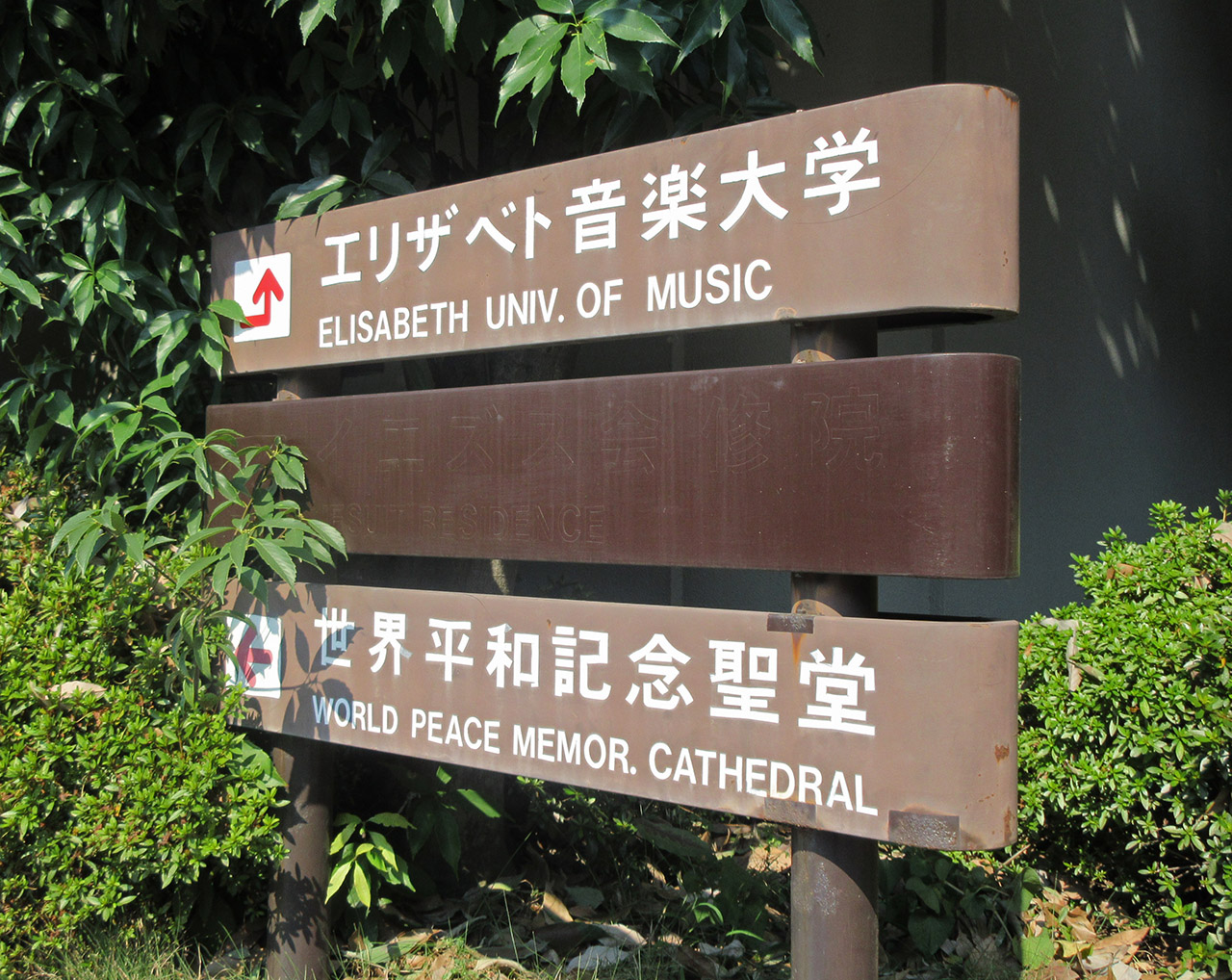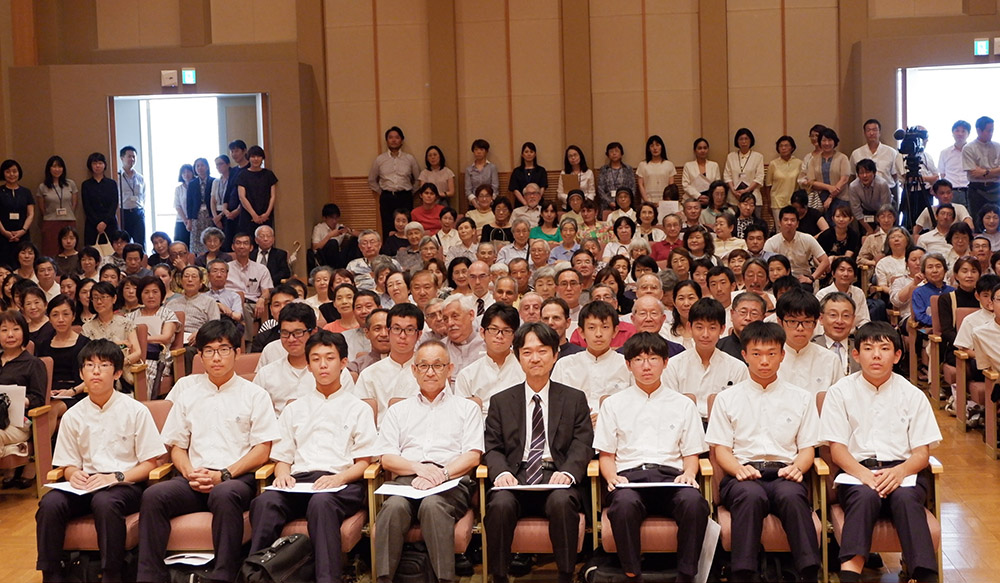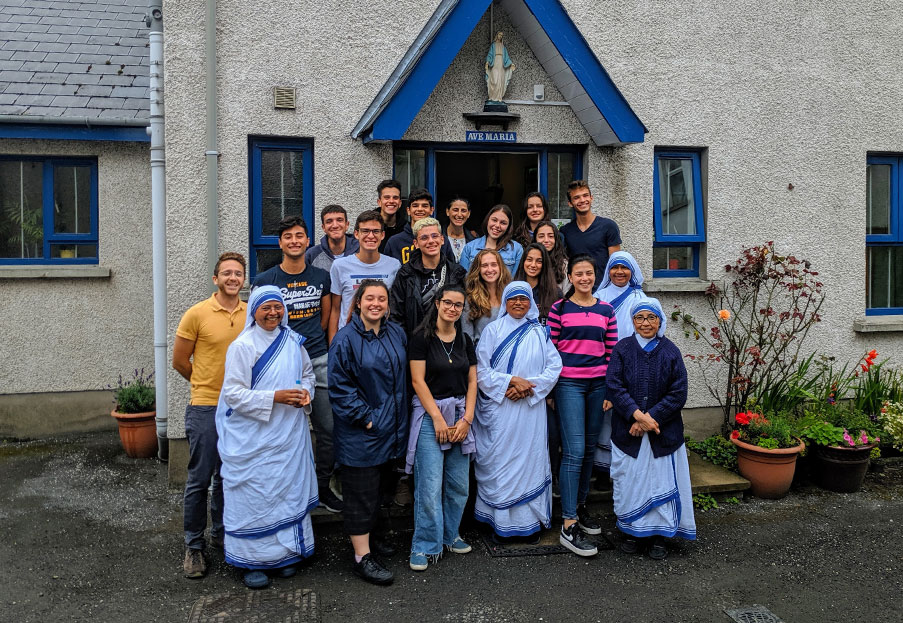Music and Jesuit tradition go hand in hand in Hiroshima

Education and music are baked into the DNA of the Society of Jesus, part of the Jesuit tradition since its early days. Perhaps then it is strange that while there are many Jesuit universities around the world, only one specializes in music: Elisabeth University of Music in Hiroshima, Japan. During his visitation of Asia this past summer, Fr. General Arturo Sosa traveled to the campus of Elisabeth University and was greeted by a concert showcasing both Japanese and Western musical traditions. After speaking on the fundamental values of Jesuit education and their place in the Universal Apostolic Preferences of the Society, he answered questions from the gathering of youth from both Elisabeth University and Gakuin Secondary School (“St. Francis Xavier and St. Therese of Lisieux High School”). The students didn’t hold back, challenging Fr. Sosa with questions about religious tolerance and modern governance.
Elisabeth University is the dream of Fr. Ernest Goossens SJ, a Belgian Jesuit missionary who was moved to tears, and to action, by the destruction of Hiroshima. Witnessing the devastation, he vowed to be part of the reconstruction of the city and to work towards a lasting peace through music. Established in 1947 as “Hiroshima Music School”, Elisabeth University of Music has become world renowned for its teaching of the organ, its centre for the study of Gregorian and polyphonic chant, its institute of oriental religious music, and its support for Japanese religious music composers.

Beyond the accolades, Elisabeth University has become a fine example of the Society of Jesus creating an environment in which young people can dream about the future, one of the accents from the UAPs. In this case, the university promotes a dimension of humanist idealism that is not often ignored in a technological age. The current President, Mr. Yuji Kawano, is proud of his institution, comprised of some 300 students, 30 professors, and nearly 150 staff members, mostly professional musicians. The institution operates according to the principles of Jesuit Catholic Education: small class sizes, personalized instruction and personalized follow-up. Even as the institution has evolved over the course of its 72 year history, the university has remained firm in its commitment to professional education in the spirit of Christian humanism: the integral formation of the person.
During the visit, we met Ms. Misato Aratani, an alumnus of Sophia University, the Jesuit University of Tokyo where she studied theology, and now an Assistant to the President at Elisabeth University. After devoting much of her youth to mastering piano and sacred singing, she found her calling at Elisabeth University.There she found a working and living environment in which spirituality and culture came together through music. There is a meeting point there, she says, which she feels is related to Ignatian spirituality that animates her. Elisabeth, she adds, is a part of the Jesuit way of life.







